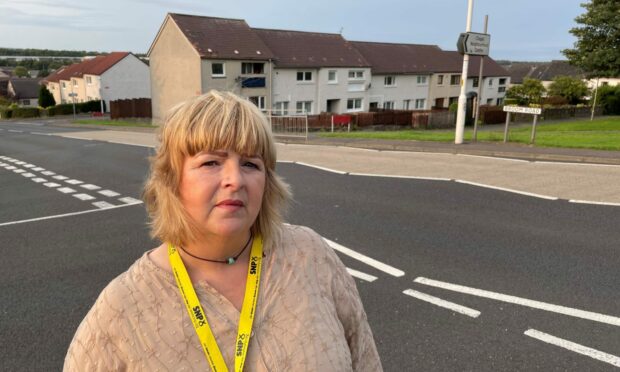Fife has hinted it is unlikely to follow Edinburgh City Council’s lead by banning A-boards and other temporary on-street advertising in problem areas.
The issue is particularly prominent in St Andrews, where sight-loss and disability charities have highlighted cluttered pavements as a concern.
While transportation chiefs have revealed they plan to discuss how their counterparts on the other side of the Forth have tackled the topic, there appear to be no plans to change current policies.
Edinburgh councillors are expected to back their ban after a successful 12-month trial, with more than 90% of businesses complying with the move.
Improved accessibility in the capital, as well as an enhanced environment on some of the most historic streets, have been cited as successes.
St Andrews residents, the community council and the Royal National Institute for Blind People (RNIB) have all called for action to curb the number of A-boards in the town.
Derek Crowe, senior manager at Fife Council, said: “The issue of A-boards falls under the Roads (Scotland) Act 1984 and we can and do take action where these are causing a problem.
“We have previously carried out campaigns and enforcement. Every time we do, we see a significant reduction for a while but over time, the numbers start to creep back up.
“When A-boards are identified as an obstruction or road safety is an issue we will ask for it to be removed or our own staff will remove the boards if they are causing an immediate danger.
“We will speak to contacts in Edinburgh to find out more about their scheme and the learning points.
“Any Fife policy change would be subject to a detailed impact assessment and would require committee approval before implementation.”
The subject has again been raised in St Andrews following the success of its “bins off streets” policy, which has seen commercial premises forced to take special measures with their refuse to ensure compliance over the past six months.
A recent survey by Playfair Consultancy Group suggested there remains demand for smaller scale improvements such as the re-angling of parking bays and reducing pavement clutter.
Mr Crowe said: “We receive very few complaints about A-boards but when we do, we act. If any A-boards are seen to be causing a particular problem and are brought to our attention we will follow these up.”










